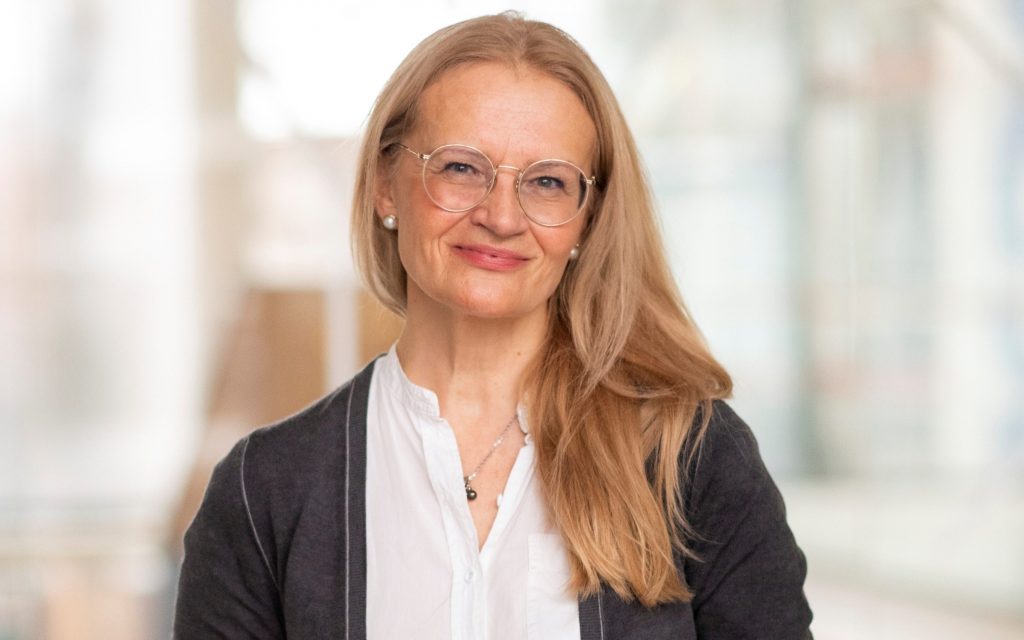 Back
Back

How is fake news transforming in the digital news era? Who perpetuates disinformation? What kind of fake news narratives circulate in public discourse? How can we recognize them and respond to them in a professional manner? How can we become resilient to lies?
These are some of the questions addressed on December 8, during an online event organized by a joint team of researchers from Vytautas Magnus University (VMU), news media professionals, and representatives of non-governmental organizations. The experts in their own fields have gathered for the project DIGIRES, whose aim for 2022 is to establish the first research center for digital resilience in the Baltic States.
“By uniting the efforts of the media, academic institutions, and non-governmental organizations, we seek to provide a comprehensive picture of disinformation in the Baltic region. One of the ambitious goals of DIGIRES is to gather a strong network of associated partners, and our activities are already being supported by Finnish, Latvian, and US researchers, by international (UNESCO) and national organizations”’, says one of the founders of the project, professor at the Department of Public Communications in VMU, dr. Auksė Balčytienė.

According to the researcher, the challenges that society faces nowadays are far more complex than previously thought. “The problems posed by global warming, digitalization, transformation of economic consciousness, inequality, and other social changes call for a comprehensive professional approach and empathetic solutions. Disinformation goes beyond national borders. It becomes increasingly difficult to avoid manipulation because it sows doubt, which in turn fundamentally undermines the feeling of inner peace and destroys trust between different groups of people. Disinformation is not a new phenomenon for scientists, but modern world politics and the state of global information technology engineering require unique and integral approaches. The only way to create this is through open professional consortia, which is what the DIGIRES research center will strive to become”, emphasizes prof. Auksė Balčytienė.
DIGIRES is a joint initiative of the academic community, media organizations, and independent journalists to detect, analyze, and counter disinformation activities in Lithuania and beyond. The long-term goal of DIGIRES is to grow into a research center with a team of highly qualified experts working together to increase society’s digital resilience, with the broad involvement of the media, independent journalists, the scientific community, and the general public.
“The news portal Delfi started monitoring, analyzing, and deconstructing the dissemination of disinformation more than 5 years ago. We have established a fact-checking department, we constantly produce content that refutes the most popular disinformation myths and manipulative narratives, we produce TV shows and various tools that help readers distinguish truth from falsehood. Efforts are paying off, but the challenges are so great that individual efforts are no longer enough. We see a strong need to join forces with researchers to find even more effective ways to educate the public and to increase their digital resilience”, says Ieva Ivanauskaitė, Head of Business Development at Delfi.
During the online inaugural event of the DIGIRES project in December, representatives of academia, media, and non-governmental organizations, as well as other members of the public interested in these topics, shared their ideas and thoughts on how to find solutions to combat disinformation more effectively.
“The pandemic provided perfect conditions for the spread of disinformation. People spent a lot of time at home surfing the internet, which was flooded with various conspiracy theories, lies, and manipulations. However, as the public initiative Elves, which emerged in the wake of the war in Ukraine in 2014, has shown, we are strong only when we work together. I applaud the ambition of the DIGIRES center to unite scientists, journalists, state institutions, and volunteers – their combined efforts will help Lithuanian society fight the disgusting disinformation phenomenon”, states Giedrius Sakalauskas, one of the creators of the Elves initiative.
Other attendees, some of whom shared their valuable insights, included Peter Gross, Professor Emeritus of the University of Tennessee (USA) and a member of the DIGIRES project’s Advisory Board; Rasa Juknevičienė, Member of the European Parliament; Gintaras Koryzna, Head of the Strategic Communications Department of the Lithuanian Armed Forces; Vaidas Saldžiūnas, journalist at Delfi; Ramunė Ramanauskienė, editor of the newspaper Tauragės kurjeris; Brigita Sabaliauskaitė, journalist in the Kaunas region; Neringa Jurčiukonytė, project manager of the NGO Media4Change; Vygintas Gasparavičius, Deputy Minister of Culture; Eugenijus Lastauskas, Deputy Chief of Education of General Jonas Žemaitis Military Academy of Lithuania; Kęstutis Driaunys, Dean of Kaunas Faculty of Vilnius University; other representatives of the media and civic society.
You can watch a video of the event here:
The DIGIRES project in Lithuania is implemented by the Department of Public Communication of Vytautas Magnus University (VMU) together with the lead project partner, the news portal Delfi. Smaller project partners include regional newspaper Tauragės kurjeris, Brigita Sabaliauskaitė, journalist in the Kaunas region, and NGO Media4Change. DIGIRES is co-funded by the European Commission.